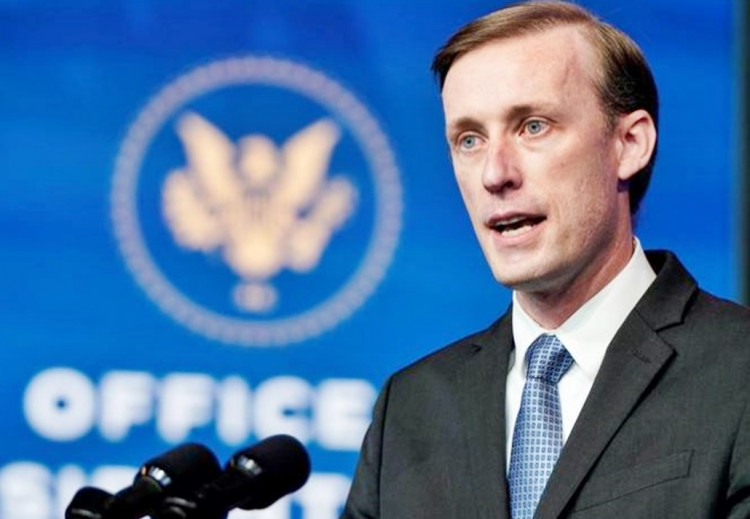In a pivotal meeting that underscores the fragile state of U.S.-China relations, U.S. National Security Adviser Jake Sullivan concluded a three-day diplomatic mission in Beijing with a high-profile audience with Chinese President Xi Jinping. The visit, which was intended to stabilize communication between the two global powers, occurred against the backdrop of escalating tensions over a range of issues and with the November U.S. elections looming.
The meeting with Xi, which took place at the Great Hall of the People, marked the culmination of Sullivan's intense discussions with Chinese officials, including Foreign Minister Wang Yi and Central Military Commission Vice Chairman General Zhang Youxia. This visit, notable for its breadth of engagement, was the first instance of a U.S. official meeting with a top Chinese military leader in this capacity since 2018.
President Xi Jinping met with U.S. National Security Advisor Jake Sullivan at the Great Hall of the People on Thursday. For more: https://t.co/22767O1v3y pic.twitter.com/NSqPLpznda — China Xinhua News (@XHNews) August 29, 2024
Xi Jinping emphasized China's steadfast commitment to a stable and cooperative relationship with the U.S., asserting that Beijing views the bilateral relationship as essential for global stability. "In this changing and turbulent world, countries need solidarity and coordination, not exclusion or regress," Xi said, reflecting China's desire for constructive engagement despite the strained relationship.
Sullivan, for his part, reiterated President Joe Biden's commitment to managing U.S.-China relations responsibly to avoid conflict. He underscored the administration's intent to maintain open lines of communication and suggested that Biden looks forward to engaging with Xi again in the near future. Both sides hinted at the possibility of a direct call between the two leaders soon, continuing the dialogue initiated during their last interaction in April.
Throughout his visit, Sullivan engaged in extensive discussions on contentious issues, including the South China Sea, Taiwan, and the conflict in Ukraine. The South China Sea, where recent confrontations between Chinese and Philippine vessels have heightened regional tensions, was a significant topic. Sullivan reaffirmed the U.S. commitment to freedom of navigation in these disputed waters, a stance that has often put Washington at odds with Beijing's expansive territorial claims.
In addition to maritime disputes, the discussions addressed the broader military dynamics between the two countries. Sullivan's talks with General Zhang Youxia, a key military adviser to Xi, focused on improving direct communication channels between U.S. Indo-Pacific Command leaders and their Chinese counterparts. This move aims to mitigate the risk of accidental clashes and manage regional disputes more effectively.
The discussions also touched upon U.S. concerns about China's support for Russia's defense industry amidst the ongoing war in Ukraine. Sullivan raised issues related to China's alleged contributions to Russia's military capabilities, a topic of significant contention as Beijing denies any such support.
In parallel, Sullivan and Wang Yi discussed economic and trade relations, which remain a point of friction. Sullivan reiterated the U.S. stance on maintaining tariffs and trade controls aimed at protecting national security and addressing what it perceives as unfair trade practices by China. Wang, in response, criticized these measures as protectionist and urged the U.S. to halt its suppression of China's economic interests.
The visit also highlighted the impact of domestic politics on U.S.-China relations. With the upcoming U.S. elections potentially altering the dynamics of the bilateral relationship, both nations are keenly observing the political climate. Democratic candidate Kamala Harris is expected to continue Biden's policy of cautious engagement, while Republican candidate Donald Trump has threatened to escalate tensions through increased tariffs and a more confrontational stance.
Sullivan's visit concluded with a call for maintaining stability and pragmatic policy approaches from both sides. While the talks yielded no major breakthroughs on key issues, they underscored the importance of dialogue in managing the complex and often contentious relationship between the world's two largest economies.






